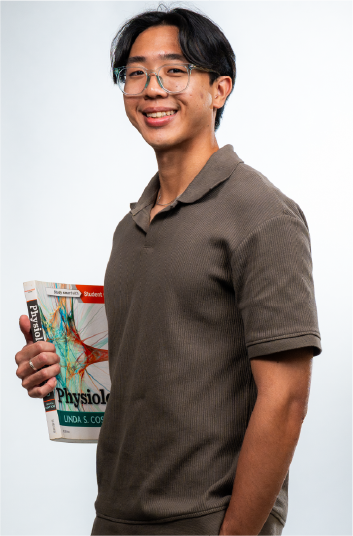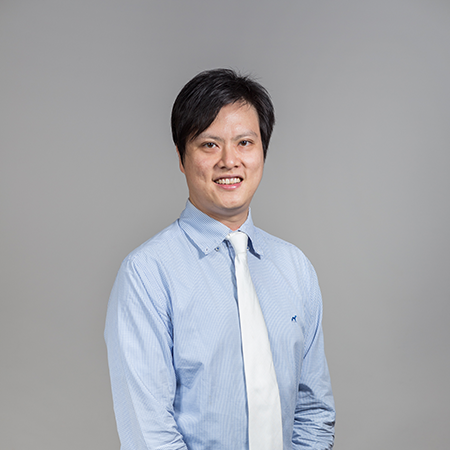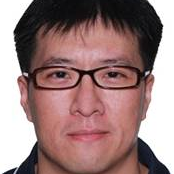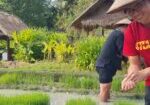
Writing
Introduction to the Writing basket of modules to be placed here.
CS1010S Programming Methodology (or its variants)
This course introduces the fundamental concepts of problem solving by computing and programming using an imperative programming language. It is the first and foremost introductory course to computing and is equivalent to CS1010 and CS1010E Programming Methodology.
Topics covered include problem solving by computing, writing pseudo-codes, basic problem formulation and problem solving, program development, coding, testing and debugging, fundamental programming constructs (variables, types, expressions, assignments, functions, control structures, etc.), fundamental data structures: arrays, strings and structures, simple file processing, and basic recursion.
The assessment of the course will be based on a mid-term test and practical exam. For more information, see the course's LumiNUS page (for enrolled students), or NUSMods.
NB: this is a required course for students considering pursuing a Minor in Computer Science; as a foundation course toward a Computer Science degree, significant depth specific to programming will be covered in this course; a strong background in Mathematics is advised for this course.
Introduction to Computer Science

Tutors
History

Why study History
I believe history has great relevance in society today. Much of the world can be better understood through the study of the past. As the saying goes, “History is to the nation as memory is to the individual.” It is undoubtedly an important aspect of our society. From our roots to our future, the study of history has much to offer.
On a more personal note, history as a subject captivated me. Since young, I have been an avid follower of historical documentaries and reader of historical accounts, non-fiction. I have often found it interesting that a single event in the past can be recounted with so many interpretations. I think finding the interpretation you decide to believe in is what makes it worth studying.
What do you intend to do after graduation?
As part of my scholarship bond with MOE, I will be training to be a teacher at NIE upon graduation. Subsequently, I will be teaching History in secondary school. I think teaching is a fruitful way for me to use the knowledge I have from the study of History.
Ahmad ZAKI
History
History is one of the most fundamental disciplines in the liberal arts curriculum. Those with historical training have traditionally taken top honours in journalism, government, the law, and other fields that require good writing and reading skills, the ability to synthesize disparate information, and a deep knowledge of the human condition. In an age of increasing over-specialization, history keeps a window open on a broad and vibrant global landscape, a perspective with colour and depth as well as scale. It informs each of the other arts disciplines while fostering skills and viewpoints uniquely its own.
Historical training at NUS is not about memorizing facts and dates, nor is it about living in the past. Mastering the discipline means understanding changing historical patterns and networks that explain the present shape of the world. Past and present are a continuum, and each remains vague without an understanding of the other. History attracts students who seek answers to broad and important questions, want to approach issues critically rather than conventionally, and want to master written and oral communication.
As a programme, History seeks to provide students with a good overview of the development of the modern world with a particular emphasis on Asia’s part therein. We provide a broad foundation course at Level 1000 and then a series of geographical and thematic courses at Level 2000 that lead to more specifically focussed courses at Levels 3000 and 4000. Our curriculum offers students an array of choices, with clear paths of study, which develop from foundation levels of knowledge to professional training in the construction of historical knowledge. Students are encouraged to make their own choices and construct their own understandings of history, knowledge, and the world.
First-year history students are introduced to the discipline of history through courses that emphasize global and regional patterns. They learn how political and economic trends, geography, and other determinants have shaped the last few centuries of human civilization. Upper-level students take courses that cover aspects of the histories of specific regions or countries, or focus on specialized topics such as the rise and fall of empires; major developments in art, science, and technology; the formation of trans-regional and international networks of trade, culture, and communication; and the historical interaction of human societies with their fragile environments. Students engage such pressing issues as gender and racial relations, sustainable development, war and peace, and the social, political, and intellectual dimensions of humankind’s relationship to technology and to nature.
- Bachelor of Arts (Honours) in History
- Second Major in History
- Minor in Art History
- Minor in History
Few history graduates work in jobs where they call themselves historians, but the skills they acquire are of fundamental importance in many occupations, and people trained in history have found success in a wide variety of professions. Historians learn how to ask questions, locate and analyze information and develop answers, write effectively, formulate coherent arguments and make successful presentations.
People with a well-rounded education, who have wide-ranging general knowledge, experience in locating information, and the ability to think, reason and communicate effectively, are always in demand. These are precisely the skills that the study of history cultivates.
There are graduates of the Department working in information technology, business and finance, law and medicine, the civil service and the teaching profession.
Department of History
(65) 6516 3838 / (65) 6516 3839
hissec@nus.edu.sg
https://fass.nus.edu.sg/hist
CHS Student Stories
Chinese Language

Why study Chinese Language?
I have always been interested in languages and have thus always wanted to do something related to them. After all, languages shape the way we see and interpret things daily. Hence, though I was never very good at Chinese, I had always enjoyed the language itself. Conversing with others in it, reading Chinese stories—there was always a certain beauty in the words. I eventually chose Chinese Language alongside my decision to become a teacher, as I hope to inspire others to appreciate and enjoy it like I do!
What do you intend to do after graduation?
I hope to be a Chinese teacher who inspires students, helping them see that Chinese is not just a subject they are tested on, but a language that could well enrich their experience on a daily basis—as long as you take the time to understand it.
Natasha WONG
Chinese Language
The Chinese Language curriculum consists of Chinese language and linguistics, and Chinese-English translation. Students study many topics, among which are an introduction to the Chinese language; the phonology, grammar, and lexicology of Chinese; the evolution of Chinese; Classical Chinese; the writing-system of Chinese characters; the semantics of Chinese; the rhetoric and pragmatics of Chinese language; and Chinese dialects.
- Bachelor of Arts (Honours) in Chinese Language
- Second Major in Chinese Language
- Minors in Chinese Studies, Chinese Language, or Translation
The Chinese Studies Department provides training in diverse areas of Chinese Studies and Chinese Language, with the aim of preparing students for employment in a wide range of sectors. Graduates are offered career opportunities as professionals in the educational and business sectors, academia, the translation service industry and the mass media.
Department of Chinese Studies
(65) 6516 3900
chssec@nus.edu.sg
https://fass.nus.edu.sg/chs
Communications and New Media

Why major in Communications and New Media?
Ever wonder why the "k" you sent over text turned someone off, yet the same message said verbally to someone was not taken as offensive? Communications is such an essential part of our lives that it's almost impossible to go without it. Studying CNM allows us to view communications, something that we often take for granted, in an alternate lens that spans across multiple disciplines, from Psychology to even hard Science! Through engaging in social discourse about communication theories in class, we are able to gather life-changing insights about the way things function in our daily lives that we do not usually notice or contemplate. On top of that, CNM at NUS gives us the opportunity to hone our skills, such as Photoshop or Javascript, and is an avenue for us to see what is truly out there in the world through extra-curricular programmes like panel discussions. Last but not least, CNM is a warm family and a place for us to learn and develop holistically, preparing us for the future ahead of us!
What do you intend to do after graduation?
After graduation, I intend to venture into Health Communications. This is something that I've always wanted to do because I see a lot of potential in how we can better the promotion of healthcare in Singapore. Some might question, "Why didn't you just study Medicine?" For me, I stand by the fact that it takes an outside perspective to be able to investigate something inside out. In healthcare, there just may be things that only someone from another discipline can easily see.
LOW Huey Sze
Communications and New Media
The undergraduate programme, leading to the degrees of B.A. or B.Soc.Sci. (Hons.), is very flexible and students are encouraged to take any of the courses offered in CNM as well as courses from other departments in the Faculty of Arts and Social Sciences, the School of Computing and the School of Business. CNM also offers graduate programmes leading to M.A. and Ph.D. degrees — mainly by research.
The core of the CNM Programme is new media studies, which focus on the societal impact of new technologies on our social, cultural, political and economic landscape. Students can choose from a wide range of courses covering subjects like computer mediated communication, human computer interaction, culture industries, media policy and regulation and game, visual and interactive media design. The communication management area provides an overview of the theory, principles and application of communication research, planning, and management in organizations. Students interested in careers in communication management in the age of interactive and new media have the unique opportunity to combine learning about interactive media with designing content for new media and doing research for communication management.
- Bachelor of Social Sciences (Honours) in Communications and New Media
- Second Major in Communications and New Media
- Minor in Communications and New Media
With this multi-faceted understanding of new media and communications, CNM graduates will be able to work in a wide spectrum of private corporations and public agencies, in policy formulation, public relations, corporate communication, research and information management positions.
Department of Communications & New Media
(65) 6516 2003
cnmsec@nus.edu.sg
https://fass.nus.edu.sg/cnm
English Language and Linguistics

Why major in English Language and Linguistics?
Studying English Language–also known as ‘Linguistics’ among students in FASS, as we also study the structures of many other languages–is truly rewarding, as there is so much that we can learn about our society as well as our human brains just from the human phenomenon of Language alone. It is also fascinating to see the evolution and development of the English Language over the years. English is a dynamic entity that continues to evolve every day. On the practical side, my communication skills have improved beyond what I would have ever expected.
What do you intend to do after graduation?
I am going to be an MOE secondary school English Language and English Literature teacher. I am honestly quite thrilled to start working! I hope to be able to ignite a passion in my students for the English Language when I embark on my teaching journey.
Amy CHAMBERS
English Language and Linguistics
The English Language and Linguistics major offers an education in linguistics, the study of human language. The programme covers a wide variety of qualitative and quantitative approaches, addressing topics including the sound systems and grammars of different human languages, how language conveys meaning, language variation and change, the functions of language in society, multilingualism, languages in contact, language and cognition, online language use, language in the media, language and ideology, language endangerment and revitalisation, language(s) in Singapore, etc. Some courses focus on the unique properties of English (as it is used around the world), while others are interested in general patterns that shape each and every language.
Like most other majors in FASS, the English Language and Linguistics major is non-vocational: it is not meant to train you for a specific occupation. Rather, it aims to help you develop broad intellectual skills such as being a good critical thinker and problem solver, being able to communicate well, and being able to draw connections across complex ideas. These transferable skills will prepare you for diverse employment opportunities. Employers and recruiters particularly value graduates of the English Language and Linguistics programme for their cultural sensitivity and training in handling the subtle nuances of language.
- Bachelor of Arts (Honours) in English Language and Linguistics
(Structured double majors available with Chinese Language, Communications & New Media, and Philosophy) - Minor in English Language and Linguistics
- Minor in English Studies
Our graduates have embarked on careers in myriad industries, such as communication, advertising, journalism and media; arts, culture, entertainment and heritage; public administration; speech pathology and therapy; public relations; events management; translation and interpretation; language technology; banking, finance and consultancy; entrepreneurship; human resources; business management; teaching and education management; graduate research and university teaching, etc.
The English Language and Linguistics major is identified under the following FASS 2.0 industry tracks:
· Public Administration
· Communication, Advertising and Media
· Arts, Culture, Entertainment and Heritage
Department of English Language & Literature
(65) 6601-7180
ellbox5@nus.edu.sg
https://fass.nus.edu.sg/ell
Food Science and Technology

What interests you most in your studies?
My course is incredibly relatable and applicable as we interact with food daily. Every meal becomes an opportunity to see science in action!
What are some skills and competencies you acquired in CHS?
I have acquired the crucial skill of systems thinking, which focuses on analysing a field through its relationships with interconnected parts, rather than viewing the parts individually. This skill is particularly valuable as no domain stands in isolation.
Elizabeth-Ann Tan
Major in Food Science and Technology
Minor in Nutrition
The undergraduate degree in Food Science and Technology (FST) covers the full educational spectrum of food science and technology, with a focus on four themes, namely: food quality and safety; new food product innovation; food processing; and nutrition.
Students will acquire knowledge of the science and technology of food, across the whole value chain. This spans upstream agricultural science and urban farming technology, to food science and manufacturing technology, food safety and sensory science, to downstream nutritional science and food waste valorisation.
Students may combine a Second Major or Minor in Nutrition with any major, including food science and technology, to gain fundamental understanding in nutrition science to supplement their primary/secondary major, and to learn about nutrition for daily applications.
Those who are passionate in research may choose to read the Specialisation in FST Research and Innovation, which includes a compulsory capstone project and relevant courses. Students can conduct a research project and gain more knowledge in a specific field of interest in food science and technology. The Specialisation in FST Industrial Applications includes a full-semester internship at a food company or organisation, an independent study course and a relevant elective course to deepen students’ experience in a real-world industrial setting.
This multidisciplinary programme is the only International Union of Food Science and Technology (IUFoST) accredited degree in Singapore.
- Bachelor of Science (Hons) in Food Science and Technology (FST)
- Specialisation in FST Industrial Applications
- Specialisation in FST Research and Innovation
- Second Major in Food Science
- Second Major in Nutrition
- Minor in Nutrition
|
Primary Major in Food Science and Technology |
Any two H2 passes (or equivalent) in Chemistry, Biology, Physics, Computing or Mathematics/Further Mathematics
A good pass in gateway course FST1101B Science and Technology of Foods is required for midstream applicants |
Primary Major in Food Science and Technology with Specialisation in
|
|
|
Second Major in Food Science |
|
|
Second Major in Nutrition |
|
| Minor in Nutrition (Only offered to CHS students) |
For applicants without H2 Chemistry and/ or Biology (or equivalent), simply read the bridging courses CM1417/CM1417X Fundamentals of Chemistry and/or LSM1301 General Biology. This is required for course FST1101B Science and Technology of Foods which is offered in all FST programmes.
The food industry is a fundamental sector in Singapore’s economy. The demand for food scientists is expected to grow, as the government seeks to develop Singapore as the leading food and nutrition hub in Asia, and as more consumers focus on convenient, safe and nutritious food.
Graduates can look forward to broad-based and specialised management and operational careers in food product development, production and processing, quality assurance, and food safety regulation, as well as in the food industry or manufacturing companies in the public, corporate or government sectors.
Under the National Research, Innovation and Enterprise 2020 initiative, there are research opportunities in sustainable urban food production, future food and food safety science to support the newly announced target of producing 30% of Singapore’s nutritional needs by 2030.
Department of Food Science and Technology
(65) 6516 1656
food@nus.edu.sg
www.fst.nus.edu.sg
History

Why study History
I believe history has great relevance in society today. Much of the world can be better understood through the study of the past. As the saying goes, “History is to the nation as memory is to the individual.” It is undoubtedly an important aspect of our society. From our roots to our future, the study of history has much to offer.
On a more personal note, history as a subject captivated me. Since young, I have been an avid follower of historical documentaries and reader of historical accounts, non-fiction. I have often found it interesting that a single event in the past can be recounted with so many interpretations. I think finding the interpretation you decide to believe in is what makes it worth studying.
What do you intend to do after graduation?
As part of my scholarship bond with MOE, I will be training to be a teacher at NIE upon graduation. Subsequently, I will be teaching History in secondary school. I think teaching is a fruitful way for me to use the knowledge I have from the study of History.
Ahmad ZAKI
History
History is one of the most fundamental disciplines in the liberal arts curriculum. Those with historical training have traditionally taken top honours in journalism, government, the law, and other fields that require good writing and reading skills, the ability to synthesize disparate information, and a deep knowledge of the human condition. In an age of increasing over-specialization, history keeps a window open on a broad and vibrant global landscape, a perspective with colour and depth as well as scale. It informs each of the other arts disciplines while fostering skills and viewpoints uniquely its own.
Historical training at NUS is not about memorizing facts and dates, nor is it about living in the past. Mastering the discipline means understanding changing historical patterns and networks that explain the present shape of the world. Past and present are a continuum, and each remains vague without an understanding of the other. History attracts students who seek answers to broad and important questions, want to approach issues critically rather than conventionally, and want to master written and oral communication.
As a programme, History seeks to provide students with a good overview of the development of the modern world with a particular emphasis on Asia’s part therein. We provide a broad foundation course at Level 1000 and then a series of geographical and thematic courses at Level 2000 that lead to more specifically focussed courses at Levels 3000 and 4000. Our curriculum offers students an array of choices, with clear paths of study, which develop from foundation levels of knowledge to professional training in the construction of historical knowledge. Students are encouraged to make their own choices and construct their own understandings of history, knowledge, and the world.
First-year history students are introduced to the discipline of history through courses that emphasize global and regional patterns. They learn how political and economic trends, geography, and other determinants have shaped the last few centuries of human civilization. Upper-level students take courses that cover aspects of the histories of specific regions or countries, or focus on specialized topics such as the rise and fall of empires; major developments in art, science, and technology; the formation of trans-regional and international networks of trade, culture, and communication; and the historical interaction of human societies with their fragile environments. Students engage such pressing issues as gender and racial relations, sustainable development, war and peace, and the social, political, and intellectual dimensions of humankind’s relationship to technology and to nature.
- Bachelor of Arts (Honours) in History
- Second Major in History
- Minor in Art History
- Minor in History
Few history graduates work in jobs where they call themselves historians, but the skills they acquire are of fundamental importance in many occupations, and people trained in history have found success in a wide variety of professions. Historians learn how to ask questions, locate and analyze information and develop answers, write effectively, formulate coherent arguments and make successful presentations.
People with a well-rounded education, who have wide-ranging general knowledge, experience in locating information, and the ability to think, reason and communicate effectively, are always in demand. These are precisely the skills that the study of history cultivates.
There are graduates of the Department working in information technology, business and finance, law and medicine, the civil service and the teaching profession.
Department of History
(65) 6516 3838 / (65) 6516 3839
hissec@nus.edu.sg
https://fass.nus.edu.sg/hist
Malay Studies

Why major in Malay Studies?
Prior to my exposure to Malay Studies, I thought that Malay Studies at NUS was all about language and linguistics. However, I was exposed to Malay Studies through a mentorship programme under the Department of Malay Studies, which I participated in during my second year of pre-university.
In Malay Studies we take a multidisciplinary approach to understanding the 'Malay world’, whether it is at a geographical, cultural or national level. Through my courses in Malay Studies, not only do I learn more about the Malay Archipelago–which is extremely relevant given our geographical location and socio-political history–but I am exposed to multiple ways of seeing this part of the world so that I can gain a deeper understanding of Malay history, as well as Malay economics, politics and society.
What has been your biggest takeaway from your classes so far?
My biggest takeaway from my classes so far is the importance of relating what I’ve learnt in class to everyday life. I think I am privileged to be able to learn and have access to information on the Malay world, something that I am familiar with and experience every day. This enables me to give a sense of rootedness to my community and confidence that whatever I learn is very much relevant and applicable to my surrounding community. I think it is very important that we see this connection between theory and everyday realities because this helps us become functioning undergraduates who can think and develop productive and meaningful discourse in society and identify problems in it with a mind to solving them.
Nur HIKMAH
Malay Studies
Malay Studies enables students to cultivate scholarly knowledge and understanding of the Malays, in particular their history and cultural identity within the context of the modern world and its challenges.
The Department offers a broad range of multidisciplinary courses that deepen the students' understanding and appreciation of important areas in Malay life. These courses cover the broad topics of Malay cultural values, religious life, Malay politics and political economy, issues on development/modernization, Malay literature, myths and folklore, issues of leadership and the elite, Malay feudalism, the Malays and colonialism and other significant interests.
In the context of the department, Malay Studies simply means the academic and the scientific study of the Malays and major aspects of their lives. Hence the department focuses on their culture, religion, literature, language, development, politics and so on. To deepen our understanding of the Malays and their place in the modern world, we apply theoretical knowledge from the various disciplines and branches of the humanities and the social sciences.
- Bachelor of Arts (Honours) in Malay Studies
- Second Major in Malay Studies
- Minor in Malay Studies
Malay Studies adopts a multidisciplinary and comparative approach covering broad issues of Malay society and Southeast Asia in general. Graduates of Malay Studies are well equipped to avail themselves of the various career opportunities open to graduates from other disciplines of the social sciences and humanities.
Students of Malay Studies enjoy particular advantage in careers requiring an intimate and in-depth understanding of the Malay/Muslim world of Southeast Asia, covering Indonesia , Malaysia , Brunei and Singapore , be it in the private or public sector. They are also equipped with the knowledge to appreciate the dynamics of Muslim societies beyond the region.
Graduates of Malay Studies are to be noted among the present leaders of the Malay community, in government, public service, as well as in the private sector. They are significantly represented in the mass media industry and the education service.
Department of Malay Studies
(65) 6601 3601 / 6516 5203
fasbox59@nus.edu.sg
https://fass.nus.edu.sg/mls
Philosophy

Why study Philosophy?
Philosophy is super interesting! The thing about Philosophy is that we tackle very big and abstract questions. But these are questions that oftentimes, in daily life, we tend to take the answers for granted. Questions like:
‘Can we know anything, and if so, how?’
‘What is the relationship between the mind and the brain?’
‘What do names refer to?’
‘Does God exist?’
‘Are we all living in the Matrix?’
And many more. We usually think we already know the answers to these questions, but when we reflect on them, we find out that the answers are not as straightforward as they seem. One thing that people are often worried about is that there are no right answers in Philosophy, unlike in Science or Engineering. But to me, this is actually the best thing about Philosophy! As it turns out, a lot of what we think are the right answers may not be, once we start to really think about the questions themselves.
What do you intend to do after graduation?
I am one of the very few people who intend to go to graduate school after university to do a PhD in Philosophy. The field is extremely competitive, but I love the subject enough to want to devote my time and effort to it.
Jerald PAN
Philosophy
The aim of the Philosophy curriculum is to foster critical thinking skills in students while enabling them to appreciate the philosophical traditions of both the East and the West. Philosophy is also often studied via its cultural heritage, such as that bequeathed by the Ancient Greeks and Romans, the Chinese and Indian traditions, Medieval Scholars in both Europe and the Arabic world, and modern Western cultures, including that of Anglo-America and Continental Europe. The Philosophy B.A. programme in the Department of Philosophy supplies an academic grounding in the subject, as well as in the thought of important philosophers both past and present. By selecting appropriate courses, students may experience the thrill and frustration of grappling with profound and challenging issues first-hand, as well as learning how great philosophers have approached them. The philosophical skills developed in the process, including systematic critical thinking, sensitivity to opposing viewpoints, and the appreciation of complex systems of belief, can be applied to wide areas of life.
Since philosophy is a focal discipline which examines the fundamental presuppositions involved in all disciplines, there is an emphasis on techniques of analytical and critical thinking from the very first year. For this same reason, the Department has attracted students from other faculties. All courses, except those of level 4000, are open to non-FASS students.
The Department also has a thriving graduate programme, with both Ph.D. and M.A. students. Graduate research scholarships are available to outstanding candidates on a competitive basis.
- Bachelor of Arts (Honours) in Philosophy
- Second Major in Philosophy
- Minor in Philosophy
The critical and analytical skills that students develop in studying Philosophy, as well as their knowledge of Asian philosophical traditions, allow them to do well in many career areas. Philosophy graduates have been recruited by such diverse organisations as The Straits Times, MediaCorp Pte Ltd, multinationals such as Shell and IBM, the Economic Development Board, Neptune Orient Lines, Singapore International Airlines, established commercial banks, and numerous divisions of the Civil Service.
Large organisations and employers value the evidence of independent thought, capacity for good writing & research, and flexible, integrative and critical thinking that an education in Philosophy provides. Last, but not least, the department provides ample opportunity for students who wish to pursue the subject at a higher level to do so. This may lead to a career in the research and teaching of Philosophy.
Department of Philosophy
(65) 6516 3892
philsjm@nus.edu.sg
https://fass.nus.edu.sg/philo
Political Science

Why major in Political Science?
Political Science is a multidisciplinary field of study that covers fields beyond politics per se; it also comprises aspects of Economics, History and Sociology, among others. There is also a large breadth of subfields within Political Science—comparative politics, international relations, political theory, and public administration. Students can expect to gain not only a wide base of knowledge, but also a wide range of tools with which they can analyse that knowledge.
What do you intend to do after graduation?
I intend to pursue a career in the social sector in Singapore, so that I can merge my interest in policy with my interest in improving the lives of our communities.
Russell SOH
Political Science
The Department offers courses in comparative politics, international relations, political theory, and public administration. Students follow general introductory courses in political science, research methodology, and Singapore politics. Those interested in contemporary international relations can then opt for courses on international politics, regionalism and international organizations, the international political economy, and the foreign policies of regions as well as countries like China, Japan, and India. Those who wish to specialize in comparative politics might choose to read courses on the politics of both maritime and mainland Southeast Asia, South Asia, East Asia, Europe, and the United States. Some of these courses focus on topics like ethnic and racial politics, women in politics, and political parties.
Students who want to specialize in political theory may choose courses on classical, modern, and postmodern political thought, through which they will encounter the great thinkers in both the ‘Western’ as well as ‘Eastern’ traditions. Students contemplating a career in public administration might opt for courses on organizational theory in public administration, public personnel administration, and comparative public administration of industrial states. Students can also choose from a growing number of advanced courses of a more interdisciplinary character that deal, for example, with topics like art, popular culture, international communications, and political humour.
The Department offers graduate degrees - M.Soc.Sci. and Ph.D. - mainly by research. The graduate programme is particularly strong in the areas of East and Southeast Asia. The Department is expanding the graduate programme and welcomes qualified international graduate students to apply.
- Bachelor of Social Sciences (Honours) in Political Science
- Second Major in Political Science
- Minor in Political Science
Graduates from the Department of Political Science have good career opportunities both in the public and private sectors. Several government ministries (especially Defence; Education; Foreign Affairs; and Information, Communications and the Arts) and the local mass media (especially Mediacorp and The Straits Times) have traditionally been very interested in recruiting graduates from the Department. Political Science graduates can also be found in banks, public relations firms, and multinational corporations. Since the discipline offers wide-ranging knowledge on regional and international events and developments, a degree holder in Political Science is much sought after.
Department of Political Science
(65) 6601 7964
polnyjw@nus.edu.sg
https://fass.nus.edu.sg/pol
Social Work

Why major in Social Work?
Social Work has many roots in society. We seek to advocate for social justice and inclusiveness within society. We work with clients to address their needs and strive for a better quality of life for every individual. Our scope of work extends across a wide range, allowing us to serve multiple jobs such as, but not limited to, social service, healthcare and government sectors. Beyond frontline work as social workers, we involve ourselves in crafting and implementing policy changes that impact the lives of every citizen in Singapore.
If you are someone who believes that people can change for the better if given the right opportunities—social work would be a major you might be interested in.
What do you intend to do after graduation?
I have yet to decide where to go, but I would like to work with the children and youth community. There are still many places for improvement in that field, and I hope to be involved when the changes arrive.
Jean Yee
Social Work
The main objective of the undergraduate General and Honours degree programme offered by the Department of Social Work is to equip its graduates for entry into the social work profession at the direct-service level. The Department's emphasis is on the development of generic clinical expertise.
However, many new graduates are also employed to pioneer professional social work in new settings where employers look to them to plan and implement innovative programmes. This requires knowledge and skills such as social policy analysis and organizational planning, non-profit agency management, social entrepreneurship, inter-organizational relationship building, resource mobilization and community networking. Course contents reflecting such knowledge and skills are incorporated into the curriculum.
Students are exposed to social service visits, skills laboratory training, fieldwork placements and course projects, among other applied learning methods. Field practice is a compulsory component in Social Work education and skills training. As preparation for entry into field practice, students are encouraged to undertake voluntary work in a social service agency.
Besides the undergraduate degree, Social Work graduate education at NUS is also available, both by coursework and by research.
- Bachelor of Social Sciences (Honours) in Social Work
- Second Major in Social Work
- Minor in Human Services
In recent years, a wide range of challenging professional job opportunities has opened up for social work graduates. Organizations that employ social workers include the following:
- Government Ministries -- Community Development, Youth and Sports; Defence; Education; Health and Home Affairs;
- National Council of Social Service (which includes the Community Chest and the Social Service Training Institute);
- People's Association, Community Development Councils and Constituency Secretariats; the National Youth Council;
- National Trades Union Congress;
- family service centres;
- child care and development centres;
- hospitals and health care centres;
- prisons, drug rehabilitation centres and halfway houses; and
- other people-helping agencies serving families, children, youth, people with disabilities and older persons. In addition, there are openings for social work graduates in areas such as social enterprises, industrial labour relations, human resource management, staff training, organizational development and consultancy, mass communication and human relations.
Department of Social Work
(65) 6516 3812
swksec@nus.edu.sg
https://fass.nus.edu.sg/swk
Southeast Asian Studies

Why major in Southeast Asian Studies?
After graduating from Film, Sound and Video at Ngee Ann Polytechnic, I knew I wanted to further my understanding of social issues and our region. Therefore, I made the choice to study social science at NUS FASS to provide me with a set of new tools to analyse our everyday life here. And Singapore being the core of Southeast Asia, where else but NUS to study Southeast Asian Studies?
What do you intend to do after graduation?
I hope to enter either the Singapore foreign service or join a regional consultancy that allows me to use as well as continue to build on my specialised knowledge of Southeast Asia.
Alvin SAW
Southeast Asian Studies
The Department of Southeast Asian Studies is a department under the Asian Studies Division of the Faculty of Arts and Social Sciences. As a department located in a university which has some of the best expertise and resources in the field of Southeast Asian Studies, we offer unique advantages to those who are interested in studying the region. Our location within the region also enables us to develop distinctive programmes that maximise our proximity to other Southeast Asian countries for our undergraduate and graduate research and curricula.
Our department aims to offer a truly inter-disciplinary approach which draws on different disciplinary perspectives and methodologies from the humanities and social sciences. We emphasise inter-disciplinary learning that is thoroughly informed by local experience and knowledge; this is accompanied by a fluency in a Southeast Asian language (currently, Bahasa Indonesia, Malay, Thai and Vietnamese). We offer BA, BA (Hons), MA by coursework, MA by research and PhD degrees. The Department of Southeast Asian Studies offers an ideal alternative to students who find conventional approaches unsatisfactory or who prefer a more subject-oriented curriculum.
We welcome you to explore the many facets of student life, faculty expertise, and the various exciting programmes on offer at our department.
- Bachelor of Arts (Honours) in Southeast Asian Studies
- Second Major in Southeast Asian Studies
- Minor in Southeast Asian Studies
Graduates of the department are employed in a wide variety of jobs in the private and public sectors. They have an advantage in cases where a job requires familiarity with Southeast Asia, and in particular, an ability to communicate in a Southeast Asian language. Local and multinational corporations based in Singapore with interests in Southeast Asia find that the department’s graduates are able to function effectively in the region.
Southeast Asian Studies graduates have built successful and exciting careers in a wide range of areas including statutory boards and government ministries, business and tourism, journalism and other media, teaching, research, and academia, public relations, finances and market research, museums, cultural centres, arts festivals, arts councils, diplomatic work, and international organizations (e.g. aid agencies, NGOs and philanthropic foundations).
Department of Southeast Asian Studies
(65) 6601 3601 / 6516 5203
fasbox59@nus.edu.sg
https://fass.nus.edu.sg/sea
Chinese Studies

Why major in Chinese Studies?
Chinese Studies had always been my intended major. I had always yearned to learn more about Chinese culture and thought. I believed that pursuing Chinese Studies as a major would build my foundation in this aspect well.
Tell us about adapting to university life and how you feel better equipped to pursue your aspirations today.
One concern I had was the fact that I did not come from an Arts background in junior college. It was a major crossover jump for me, as my subject combination in JC was mostly made up of Science subjects and writing essays had never been my forte. I can still remember the first lecture test that I did for an exposure course which required long structured answers. As compared to the work of a friend of mine in that class, my answers were relatively short and not elaborate enough. However, as time passed, and with more practice, I slowly got the hang of it and manage to write essays from different perspectives and elaborated on my points sufficiently well. So yes, I had concerns, but they turned out to be great motivators for me to improve myself.
Kenneth SOON
Chinese Studies
The curriculum consists of 3 major areas: Chinese literature, history and philosophy. It aims to provide students with comprehensive training in both classical and modern Chinese Studies. Topics covered include classical and modern Chinese literature, ancient and modern history of China, pre-Qin ideology and religion, business Chinese, film and cultural studies. The Department emphasises training students to develop independent and critical thinking. Although Mandarin is the medium of instruction, some courses are conducted in English.
- Bachelor of Arts (Honours) in Chinese Studies
- Second Major in Chinese Studies
- Minors in Chinese Studies, Chinese Language, or Translation
The Chinese Studies Department provides training in diverse areas of Chinese Studies and Chinese Language, with the aim of preparing students for employment in a wide range of sectors. Graduates are offered career opportunities as professionals in the educational and business sectors, academia, the translation service industry and the mass media.
Department of Chinese Studies
(65) 6516 3900
chssec@nus.edu.sg
https://fass.nus.edu.sg/chs
Data Science and Analytics

Why study this major?
I am interested in harnessing the power of data to generate insights and unlock the transformative value of data science for a larger cause - helping society and businesses.
How does university life better equip you to pursue your aspirations?
I have the opportunity to work with people from diverse backgrounds and disciplines, which opens up new possibilities beyond my specialised skills. Through interdisciplinary learning, I have gained clarity on the skills and knowledge I need for the workforce.
Koh Yi Jing
Double Majors in Data Science and Analytics and Psychology
The undergraduate degree in Data Science and Analytics equips students with the skills to solve complex data-related problems in businesses and new scientific applications using novel analytical tools, and the ability to communicate insights using visualisation tools.
In this interdisciplinary programme, students will read courses in mathematics, statistics and computer science, and be exposed to the interplay among these three key areas in the practice of data science. They will also delve in-depth into analytics methods such as artificial intelligence; computation and optimisation; computer algorithms; database and data processing; data mining and machine learning; and high dimensional statistics; as well as applications of analytics to various domains.
Students can opt to take industry-driven capstone courses, where they will work on research and projects that are related to real-life data and workplace challenges; or participate in the NUS Co-Operative Education Programme, where they will gain extensive workplace experience by spending 18 months (five consecutive semesters and terms) with reputable employers.
The Second Major in Data Analytics equips students to apply computing and statistical methods to analyse and model complex data. The Specialisation in Operations Research covers the application of analytical methods and mathematical models to solve problems, while the Specialisation in Statistical Methodology focuses on advanced statistical techniques and methods for data analysis.
The Data Science and Analytics programme is jointly offered by the Department of Statistics and Data Science and the Department of Mathematics, in conjunction with the Department of Computer Science in the School of Computing.
- Bachelor of Science (Hons) in Data Science and Analytics
- Specialisation in Operations Research
- Specialisation in Statistical Methodology
- Second Major in Data Analytics
- Minor in Data Analytics
| Primary Major in Data Science and Analytics | A very good H2 pass (or equivalent) in Mathematics/Further Mathematics |
Primary Major in Data Science and Analytics with
|
|
| Second Major in Data Analytics | |
| Minor in Data Analytics | A good H1 pass (or equivalent) in Mathematics |
For applicants without H2 Mathematics/Further Mathematics, simply read the bridging course MA1301/MA1301X Introductory Mathematics. (Only applicable for Primary Major and Second Major in Data Analytics)
Data scientists are able to transform raw, unstructured information into understandable, actionable insights, a valuable asset in industries that deal with voluminous data. With the proliferation of information and growing business reliance on data-driven decisions, the demand for data scientists remains high.
Because there are so many potential applications for data science, data science professionals have many exciting career opportunities in a wide array of industries. These include consumer businesses, financial services, healthcare, manufacturing, pharmaceuticals and public service, amongst others. They can also contribute to Smart Nation-related work.
Department of Statistics and Data Science
(65) 6516 6774 / 6516 5321
askdsdsug@nus.edu.sg
www.stat.nus.edu.sg
English Literature

Why study English Literature?
It is a discipline that really makes you think critically. You study the material, and you have to think about all the different approaches you can take. It also creates a great deal of empathy in you. My experience studying English Literature has been rigorous and tough at times, but I’ve come out of it a lot more compassionate and open-minded. It has also allowed me to find my voice, both in writing and in other aspects of my life, so that I can communicate my thoughts and ideas with greater confidence and precision.
What do you intend to do after graduation?
I haven’t decided exactly, but I do know I want to venture into writing and journalism.
Chantelle LIM
English Literature
The undergraduate programme in English Literature is designed to provide a broad foundation in reading and analysing texts of all kinds. In your foundation course, you will be introduced to literary studies as a field and trained in basic literary and cultural reading, as well as the craft of academic writing and analysis. All Level-2000 courses will equip students with interpretive tools that they can use to parse literary texts and other forms of cultural expression, with a special focus on “skills” training with regard to textual analysis and locating texts within specific historical and cultural contexts. Subsequent courses at the 3000-level retain this focus on literary analysis but diversify in topic and are usually more field or period-specific. This might involve introducing students to specific genres, historical periods, and/or theoretical approaches.
Our programme is flexible and allows students to develop individual interests, although all students are expected to read a certain number of courses from the “pre-1800” literature category, as these provide some basic knowledge of the development and history of literatures in English. In addition, we offer courses as diverse as contemporary film, South Asian literature, American literature, Victorian fiction, and aesthetics. At the honours level, a wide range of courses deal with specialised topics at a more advanced pitch, with examples including modern critical theory, material cultures, Southeast Asian film, and even more specific topics that might focus on a single author or concept. What connects these varied courses is the emphasis on how to read, locate, and analyse literary and cultural texts in all their diversity and complexity. To supplement coursework, we also offer opportunities to undertake advanced research projects in special topics as part of continuous assessment. The flexibility of the literature programme within the modular system allows you considerable breadth in the types of courses chosen, while still retaining the rigour of the traditional English literature degree. This means that our students who wish to continue their studies have no trouble entering into top English literature PhD programs around the world.
- Bachelor of Arts (Honours) in English Literature
- Second Major in English Literature
- Minors in English Language, English Literature, English Studies, and Film Studies
In addition to a sensitivity to language and the sophisticated communicative skills developed through prolonged engagement with literary texts and criticism, the literature programme imparts the critical ability and theories necessary to engage with a range of cultural texts such as film, various types of written discourse (from legal to commercial), cultural and historical projects, publishing, advertising and media. A literature student is thus well equipped for a number of jobs; typical career areas of recent graduates include journalism, television, public relations, teaching, and publishing.
Department of English Language & Literature
(65) 6601-7180
ellbox5@nus.edu.sg
https://fass.nus.edu.sg/ell
Geography

Why study Geography?
Geography in university is vastly broader than what we are exposed to in secondary school and JC. In general, we are exposed to contents about environment, society, culture, politics and economics. You will be surprised to hear that we have courses on petroleum exploration, transportation and even gender issues. Apart from this, we are introduced to technical software through courses relating to Geographic Information Systems (GIS) which helps us in our research and data processing. Additionally, NUS Geography gives each student flexibility and allows them to focus more on their interests, not just in class but also out in the field with various field opportunities.
What do you intend to do after graduation?
I intend to join the education sector as a teacher. I hope to inculcate the lessons I have learnt from NUS Geography and FASS in my students and change their perceptions of the arts and social sciences.
Mohamed RIDZUAN
Geography
courses in the Department of Geography are organized along four areas of enquiry: environmental processes and change; global political economy; society and culture; and regional specializations (with a focus on Asia). The Department also offers a Field Studies course in which students travel to countries in the region such as Thailand and Malaysia where they conduct field work and collect research material over a 3-5 week period. Home-stays and visits to local universities and key sites of interest are part of the overseas learning experience.
A Minor in Urban Studies is jointly offered by the Department of Geography and the Department of Real Estate (School of Design). The minor offers students a chance to develop expertise and skills in urban studies, and is particularly useful for those wishing to pursue careers related to urban development and planning.
The Department also offers a Minor in Geographical Information Systems (GIS). This is appropriate for students interested in careers utilizing GIS as analytical tools in business, environmental science, political science, public health, sociology and urban planning. Students pursuing computer science or information systems will also benefit from this programme.
The Department offers graduate programmes (which include both the writing of a thesis as well as coursework) leading to M.Soc.Sci. and Ph.D. degrees. The large number of staff and their diverse training from British and North American universities provide a wide breadth of research opportunities for graduate students. On top of the four main curriculum areas listed above, faculty members are also able to supervise research in specific topics within the field of population studies, political geography, geography of services, women's studies, and urban and regional planning.
To enhance teaching and research, the Department is equipped with the latest facilities. These include a Map Resource Unit that has about 25,000 maps,including large and small scale topographic series, geographical maps, weather charts as well as a valuable historical map collection; the Unit is continuously expanding its collection of topographic sheets on Southeast Asia. The department also has three laboratories: Earth Laboratory, Geo Laboratory, and Geographic Information Systems (GIS) Laboratory. A variety of GIS, remote sensing and other software are available. There is also an Environment Field Site situated near the top of Kent Ridge. Climatological and other instruments have been set up to collect data for teaching and research purposes.
- Bachelor of Social Sciences (Honours) in Geography
- Second Major in Geography
- Minor in Urban Studies
- Minor in Geographical Information Systems (GIS)
- Minor in Physical Geography
Geography is one of the most diverse fields of academic study offering a wide breadth of careers for our graduates. As geography trains one to think critically and to write analytically, these valuable assets prepare graduates well for administrative jobs in government bodies, statutory boards and private organizations. About a third of the graduates presently work in the civil service and statutory boards, including the armed forces as diplomats, administrators, executive officers, planners and research analysts. Another third has found employment in a wide range of occupations, as marketing officers, public relations officers, bank officers, journalists, editors, librarians, stockbrokers, real estate developers and politicians. The rest have joined educational institutions, from secondary schools to universities, as teachers and lecturers. There is still a shortage of graduate geography teachers and students planning on a teaching career are encouraged to take courses suitable for teaching purposes. An academic career with the university is also a possibility for outstanding graduates with a Ph.D. degree.
Department of Geography
(65) 6516 3851
geocmg@nus.edu.sg
https://fass.nus.edu.sg/geog
Japanese Studies

Why major in Japanese Studies?
Japanese Studies is one of the few departments offering multiple opportunities to travel (to Japan). You get to pick up a new language, a great skill to have, and you also gain critical perspectives on Japanese culture beyond the stereotypes that popular culture tends to feed us. For me, the best part of it is that the cohort is usually small, so the community is tightly-knit since we all have similar interests.
What has been your biggest takeaway from your classes so far?
‘Japanese Proficiency’ and ‘critical thinking skills aside, I think my biggest takeaway really turned out to be my close friendships in this department; I still keep in touch with even the seniors who have graduated. Of course, that is not to say that the former is absent; Japanese Studies gives you all of that as well. Most of our exposure to Japan comes from the media, often which generalises and/or exaggerates the country and its people. My classes with Japanese Studies have given me both theoretical and practical experience, developing key life skills such as inter-cultural communication.
Benjamin GOH
Japanese Studies
Founded in 1981, the Department of Japanese Studies is one of the largest area studies departments devoted to the study of Japan in the Asia-Pacific region. We offer B.A., M.A. and Ph.D. degrees in Japanese Studies taught by specialists with qualifications from leading universities around the world. Every year, more than 2000 undergraduate students enroll in our courses covering a broad range of disciplines including Japanese linguistics, business studies, sociology, anthropology, history, literature, religion, politics and international relations. All of our faculty members have extensive experience in Japan and are active in publishing and research.
The Department welcomes students who show a keen interest in the subject. Students are not expected to have studied the Japanese language. For those who have, placement tests will be conducted to enable them to pursue language courses appropriate for their level.
- Bachelor of Arts (Honours) in Japanese Studies
- Second Major in Japanese Studies
- Minor in Japanese Studies
Armed with combined majors in other disciplines, graduates of the department have proven to be versatile yet sufficiently specialized for the career market. Graduates of the Department are well prepared for work in the private and public sectors, as well as in local and overseas companies and institutions which require graduates with good knowledge of Japanese language and society, and its operating values and ethos. They have helped to fill the needs of local corporations and enterprises which require employees to interact with business networks in Japan. Many graduates have also found employment in the various ministries and statutory boards, in the fields of banking and finance, marketing and management, and the mass media.
Department of Japanese Studies
(65) 6516-3818
jpssec@nus.edu.sg
https://fass.nus.edu.sg/jps
Mathematics

What are some skills and competencies you acquired in CHS?
CHS courses encourage me to test my ability to understand cultures and do more emotive yet incisive observations and writings. These blend well with my pencil-paper proofs.
How does university life better equip you to pursue your aspirations?
CHS gives me the flexibility to make choices and decisions based on my interests, aptitudes and aspirations. In the process, I have become more self-assured in taking charge of my own learning.
Zhang Zihe
Major in Mathematics
Minors in Asian Studies and German Language Studies
The undergraduate degree programme in Mathematics offers a wide range of courses and a broad spectrum of mathematical research activities, some multidisciplinary in nature. The curriculum consists of fundamental mathematical concepts in areas including algebra; differential equations; geometry and topology; logic; number theory and combinatorics; and real and complex analysis. It also includes the study of mathematical methods and problem-solving techniques that are applied in science, engineering and computer science.
The Double Degree Programme (DDP) in Mathematics and Computer Science is a specially-designed or structured DDP providing a standardised structure for students who are keen to pursue both disciplines and offers two specialisations (optional) for students with special interest in either Algorithms and Computation or Multimedia Modelling.
The Second Major in Mathematics offers a broad-based education in mathematics and is best suited for students with strong interest in mathematics but who are majoring in other disciplines such as computer science, economics/business, engineering, physics or statistics.
The Minor in Mathematics encourages and gives due recognition to students who have read enough courses to reach a sound level of mathematical competence at the university level.
Students have the option to pursue the following specialisations. These include Operations Research and Analytics, which covers the application of analytical methods and mathematical models to solve problems in areas like industrial engineering, operations management and finance; and Pure Mathematics, which covers advanced mathematics topics in algebra, analysis, mathematical logic and geometry.
The Special Programme in Mathematics is designed for a select group of students who have a strong passion and aptitude for the mathematical sciences. It comprises a number of specially designed courses (S-courses) in foundational mathematics, which are taught in greater depth and sophistication than their regular versions. Besides taking these specially curated S-courses, students will also need to pass some advanced undergraduate as well as basic graduate mathematics courses.
Students will have the opportunity to undertake research during their final year project, or through various research programmes such as the Undergraduate Research Opportunities Programme in Science (UROPS) and Overseas Summer Research Programmes, which offer opportunities to pursue independent research projects.
- Bachelor of Science (Hons) in Mathematics
- Specialisation in Operations Research and Data Analytics
- Specialisation in Pure Mathematics
- Double Degree Programme in Mathematics and Computer Science
- Second Major in Mathematics
- Minor in Mathematics
- Special Programme in Mathematics
| Primary Major in Mathematics | A good H2 pass (or equivalent) in Mathematics/Further Mathematics |
Primary Major in Mathematics with
|
Mathematics graduates are highly versatile and are favoured by employers for their strong analytical and logical reasoning skills, and numerical literacy. These skills are valuable in nearly any field since they are crucial to identifying and solving challenging problems.
Mathematicians are ideal for positions in accountancy, financial services and insurance. There are also many career opportunities in fields ranging from business to education, government and operations research. There is also a pathway from the computer-based skills acquired in a mathematics degree to a technology-based career.
Department of Mathematics
(65) 6516 2738
AskMathUG@nus.edu.sg
https://www.math.nus.edu.sg/
Philosophy, Politics, and Economics

Why take on Philosophy, Politics, and Economics?
The PPE programme, with its unique interdisciplinary curriculum, gives me the opportunity to broaden my perspectives, sharpen my critical thinking skills, and make me a more effective communicator. From thinking philosophically about utility and welfare to deriving the maximum utility from multivariate utility functions, the joy that I derive from the intellectual stimulation and fruitful discussions with my brilliant classmates has left me without a single moment of regret in being part of the pioneering cohort of PPE students in NUS FASS.
What do you intend to do after graduation?
I intend to pursue a Master's Degree in Public Policy/ International Relations/ War Studies overseas. What about after that? Well, I am excited to return to a government organisation that has, much to my gratitude, willingly sponsored my undergraduate and postgraduate education. I look forward to the day that I can once again meaningfully contribute towards something greater than myself.
Nickson QUAK
Philosophy, Politics, and Economics
In this increasingly complex modern world, many of the issues that affect society are multidimensional in nature. The Philosophy, Politics, and Economics (PPE) Programme at the Faculty of Arts and Social Sciences (FASS) aims to develop students’ critical, applied and strategic thinking skills. These skills are crucial in the workplace of the future, where more emphasis will be placed on the ability to analyse situations from multiple perspectives and to develop creative and effective solutions.
Students in PPE will encounter a curated suite of multi-purpose intellectual tools from Philosophy, Political Science, and Economics, three well-established disciplines of the humanities and social sciences. They will also achieve a degree of depth in a discipline of their choice, while being introduced to cross-disciplinary integration through modules designed to utilise insights and methods from across the three fields in classes bringing together PPE students from different specialisations.
The programme is flexible and can be enriched with other special academic opportunities including the University Scholars Programme, Residential Colleges, NUS Overseas College, Student Exchange Programmes, a second major or minor in other domains, and internships.
- Bachelor of Arts (Honours) in Philosophy, Politics, and Economics
Graduates of the PPE programme can look forward to careers in a myriad industries, including banking and finance, business analysis, journalism, politics, public service, social work, and research.
Philosophy, Politics, and Economics Programme
(65) 6601 8816
https://fass.nus.edu.sg/ppe
Psychology

What interests you most in your studies?
I think it a fascinating subject where we get to understand people’s behaviour and thoughts on a deeper level. I study Psychology to get to know the people around me better and it allows me to understand why people do the things they do.
What do you intend to do after graduation?
It depends on how things go as I continue studying in FASS. However, I would like to pursue a career in forensic psychology. I think working with SPF would be a good opportunity, otherwise, I would plan to further my studies in this field.
WONG Jin Nen
Psychology
The objective of the Psychology programme at the B.A. level is to provide a comprehensive basic academic grounding in psychology. The programme aims to equip students with knowledge in the key areas of psychology (such as human biological processes, developmental processes, social processes, cognitive processes, mental health and adjustment of individuals) as well as an understanding of the applications of psychology. It also develops skills for undertaking studies of behaviour, including statistical skills and the use of computers for data analyses.
Among the central topics and questions that the programme considers are
- Biological Psychology- What are the biological bases of our behaviours?
- Cognitive Psychology- How do we know about the world and ourselves?
- Abnormal Psychology- What are the nature and causes of abnormal behaviour?
- Developmental Psychology- What happens as we grow from birth through childhood into adulthood and then into old age?
- Social Psychology- How does interaction with others and groups influence our behaviour?
- Empirical Methods- How can we obtain data about psychologically interesting phenomena and how should these data be analysed and reported?
The programme seeks to provide sufficient rigour and coverage so that students can either take on psychology-related vocations or pursue graduate training in psychology when they graduate. Toward this end students undertake laboratory/practical work and are encouraged to enquire through empirical study rather than simply to through reading or classroom instruction.
- Bachelor of Social Sciences (Honours) in Psychology
- Second Major in Psychology
- Minor in Psychology
Virtually all employment settings involve interaction with others. As such an understanding of how the mind functions and of interpersonal relationships can be an advantage. Psychology graduates from the Department are employed in a variety of settings where such psychological skills and understanding can be put to good use - often in management /leadership roles.
Those who go on to do Honours in Psychology are sought after in employment settings where their potential as future professional psychologists is of particular interest to employers. Psychologists in Singapore are employed in various settings which include MINDEF, MCYS, MOE, MOH, ITE, SPRING Singapore, a number of voluntary social service organizations, as well as in consultancy firms and research organizations.
Department of Psychology
(65) 6516 3749
psybox1@nus.edu.sg
https://fass.nus.edu.sg/psy
Sociology

Why study Sociology?
I have always been fascinated by the study of human behaviour, and with understanding why different people who are biologically the same can live in totally different ways and hold completely different ideologies. I believe that this acquired sensitivity to the mores and concerns of each sector of society will benefit me in the administration of public service, which is my other passion.
What do you intend to do after graduation?
Upon graduation, I am assuming duty at the Ministry of Home Affairs.
Aloysius ZAI
Sociology
Sociology is the systematic study of the diversity of ways in which life is socially organized. The discipline seeks to understand the structure and dynamics of society, and their connections to patterns of human behaviour and individual life changes. Sociologists attempt to make sense of the variety of ways in which the structure of social groups, organizations and institutions affect human actions and opportunities.
The overall objective of sociology is to systematically understand how individuals and groups create, maintain and change social relationships, social structures and institutions over time. As such sociologists are interested in grasping the dynamics of social change precipitated by the constant two-way interaction between individuals and social structures.
The focus of sociologists ranges from intimate interpersonal relationships, formal organizations and institutions, to large-scale global transformations. The range of issues and institutions studied by sociologists include: cultural diversity, popular culture, social identity, inequality, gender, deviance, politics, religion, race and ethnicity, family and kinship, education, development and social change, the economy, the population, the urban social environment, science and technology.
Unlike other social science disciplines, sociology is not restricted to a particular domain such as politics or the economy but seeks to unravel the interconnections between all aspects of social existence. Overall, sociology seeks to provide students with a critical understanding of their own location within a network of social interactions, organizations and institutions that simultaneously facilitate or inhibit social action and social change.
- Bachelor of Social Sciences (Honours) in Sociology
- Second Major in Sociology
- Minor in Sociology
Sociology graduates are in high demand in a variety of occupations that require inquiring, analytical and critical minds. A sociology degree will impart you with the critical intellectual capacity of examining controversial issues from a variety of perspectives. These critical thinking skills are invaluable in an era of fast paced social change and will be an asset regardless of your chosen career.
Our sociology graduates have found employment in administration and personnel, information and research, community service, management, the media industry, teaching, uniformed services, marketing, and public relations among others.
Department of Sociology
(65) 6516 3822 / 6275 / 8983
socbox3@nus.edu.sg
https://fass.nus.edu.sg/soc
Statistics

Why study this major?
I am passionate about statistics because of its versatility across different fields, from finance to life sciences. Its broad applicability provides me with numerous opportunities to explore.
How does university life better equip you to pursue your aspirations?
University life provides me the flexibility and resources to actively bridge the gap between academics and industry. Through competitions, internships and peer projects, I get to apply classroom knowledge to real-world challenges, better preparing me for the world of work.
Chen Mingyue
Double Majors in Statistics and Quantitative Finance
The undergraduate degree in Statistics offers a wide array of courses ranging from theoretical and applied statistics to applied probability.
Students will learn about the scientific application of mathematical principles to data collection, analysis and presentation, in order to gain insights that are crucial for data-driven decision-making. They will acquire skills to design experiments, conduct surveys that yield reliable conclusions and offer predictive insights.
The Second Major in Statistics is designed to provide a sound knowledge of statistics, teaching students to extract information from surveys, databases and carefully designed experiments. This enables them to decide on a suitable course of action.
The Minor in Statistics introduces students to the basic concepts and practices in statistics as a pathway to enhance analytical skills and statistical reasoning in dealing with information related to their majors.
Students can also take specialisations in Data Science, which focuses on computing concepts and skills to manage the collection, storage and analysis of voluminous data; or Finance and Business Statistics, which focuses on the application of statistics to the areas of investment and financial analysis, insurance, marketing research and management.
- Bachelor of Science (Hons) in Statistics
- Specialisation in Data Science
- Specialisation in Finance and Business Statistics
- Second Major in Statistics
- Minor in Statistics
| Primary Major in Statistics | A good H2 pass (or equivalent) in Mathematics/Further Mathematics |
Primary Major in Statistics with
|
|
| Second Major in Statistics | |
| Minor in Statistics |
For applicants without H2 Mathematics, simply read the bridging course MA1301/ MA1301X Introductory Mathematics.
Statisticians apply the principles and techniques of statistical analysis to understand and interpret numerical data. Their work helps in identifying numerical trends in all kinds of fields, and in understanding phenomena in the physical and social sciences. Advances in technology and Big Data have increased the demand for statisticians, who are skilled in unlocking value from data.
Graduates are well-placed to work as biostatisticians, data analysts, financial analysts, econometricians or researchers, amongst many others, in diverse sectors which seek to extract business and scientific insights for decision-making. These sectors include advertising, consumer businesses, financial services, healthcare, insurance, manufacturing, pharmaceuticals and public policy, amongst others.
Department of Statistics and Data Science
(65) 6516 6774 / 6516 5321
askdsdsug@nus.edu.sg
www.stat.nus.edu.sg
Chemistry

What interests you most in your studies?
I am fascinated by how chemistry knowledge is used to solve issues prevalent in society today, such as the different forms of synthesis which facilitate medical breakthroughs or the research on different forms of energy to reduce reliance on fossil fuels.
How does university life better equip you to pursue your aspirations?
I have ample opportunities to build on my leadership, organisational and communications skills, which I believe will be beneficial for my career in the future.
Celestine Teo
Major in Chemistry
The undergraduate degree in Chemistry prepares students for careers as qualified chemists. It also provides a foundation for careers in many other diverse fields. Its curriculum is grounded in both experimental applications and theoretical studies. It also offers breadth and depth, covering fundamental knowledge of the major fields of chemistry, namely: analytical; inorganic; organic; and physical chemistry, which can be applied to many scientific fields.
The programme offers a Second Major in Chemistry, three Minors in Chemistry and two Specialisations in Chemical Research and Sustainable Chemistry.
The Minor in Analytical Chemistry covers the theory and practical aspects of modern analytical techniques used widely in the chemical industry. The Minor in Chemistry will provide students solid foundational understanding of modern chemistry, and the Minor in Nanoscience broadly covers the structure and properties of matter at the nanoscale.
Students can undertake research during their final year project, or through various research programmes such as the Undergraduate Research Opportunities Programme in Science (UROPS) and Overseas Summer Research Programmes. The Specialisation in Chemical Research enables students to develop critical learning skills and apply knowledge and skills gained to analyse and solve problems in current research topics of chemistry. The Specialisation in Sustainable Chemistry equips students with the knowledge of sustainable practices to contribute to a low-carbon economy. Students will also acquire laboratory experience in chemical synthesis, spectroscopy, analytical and physical measurements.
- Bachelor of Science (Hons) in Chemistry
- Specialisation in Chemical Research
- Specialisation in Sustainable Chemistry
- Second Major in Chemistry
- Minors
- Analytical Chemistry
- Chemistry
- Nanoscience
| Primary Major in Chemistry | A good H2 pass (or equivalent) in Chemistry
|
Primary Major in Chemistry
|
|
| Second Major in Chemistry | |
| Minor in Chemistry | |
| Minor in Analytical Chemistry | |
| Minor in Nanoscience | A good H2 pass (or equivalent) in Chemistry or Physics |
For applicants without H2 Chemistry, simply read the bridging course CM1417/ CM1417X Fundamentals of Chemistry.
Chemistry involves the study of all things chemical - chemical processes, chemical compositions and chemical synthesis - to better understand the way in which materials are structured and how they react in certain situations. Having gained chemical understanding at the molecular level, graduates can apply this knowledge in many ways across a wide range of careers in both scientific and non-technical domains.
Chemistry graduates are in demand in research and academia, and in fields like chemicals, energy, healthcare, manufacturing, pharmaceuticals and sustainability, amongst others. A chemistry degree also gives graduates the scientific insight to become patent attorneys, with further study into intellectual property law.
Department of Chemistry
(65) 6516 6361 / (65) 6516 2922
UGEnquiries@nus.edu.sg
https://chemistry.nus.edu.sg
Economics

Why study Economics?
I think there are two ways to look at Economics. One is to think of Economics in terms of its theories and another way is to view Economics as a lens to study different social issues. My interest in Economics mainly comes from the latter. In Economics, you pick up important tools, such as econometrics, to find out the how and why behind social phenomena. Too often, public opinions are being swayed by untested rhetoric while Economics gives us a rigorous way to test existing hypotheses. I think this is especially important in the current era where we have much more data and better technology. Having a good foundation in Economics gives us the tools to make sense of data and to better utilise it to understand the complex world.
What do you intend to do after graduation?
I believe in using what I have learnt to reach out to marginalised communities, and I am interested in a job in the social service sector or in international development. Currently, I am applying for research and policy positions organisations such as the MSF and World Bank.
Gregory THAM
Economics
The discipline of Economics is the key to an understanding and analysis of economies and their constituent components. In recent decades, this role has been strengthened by the infusion of mathematical, statistical and computational methods in the subject matter of Economics. Rigour of analysis, empirical validation of economic hypotheses and contributions to business and public policy have been the main pillars on which the discipline's reputation has been built.
The undergraduate curriculum offered by the Department of Economics builds on a strong core of theoretical analysis and empirical methods of economics and covers in depth a wide range of specialized sub-fields of the discipline. The Department emphasizes the importance of a strong curriculum and good teaching. A primary mission of the Department is to produce graduates that will meet the diverse needs and demands of all sectors of the national economy and beyond. It aims to impart to students important transferable skills for lifelong learning and employability.
The Department of Economics has an established reputation as one of the largest and leading departments of Economics in the Asia-Pacific region. Faculty members’ research areas span a wide range of economic fields, with strength in the core areas of microeconomics, macroeconomics and econometrics, as well as in particular fields such as game theory and industrial organization, labor economics, education, financial economics, and growth theory and development with special reference to Asia. Recognition of the contributions by the faculty has, inter alia, taken the form of editorships; election to membership of scholarly societies; invitations to scholarly conferences; and consultancies with international organizations and the governments of Singapore and other ASEAN countries. Because of the size and diversity of the faculty and the range of its curricular offerings, students can specialize in almost any area of interest in Economics.
- Bachelor of Social Sciences (Honours) in Economics
- Second Major in Economics
- Australian National University-NUS Joint Honours Degree Programme in Actuarial Studies
- Minor in Economics
Graduates of the Department have little difficulty in securing good jobs in both the public and private sectors. The discipline of Economics is the key to understanding the role and the making of incentives in the behaviour of man in society. The study of economics thus equips the student with useful transferable skills such as problem solving, effective writing, basic empirical skills and knowledge of the key economic institutions.
There is a high demand for economists in the public and private sector and our graduates are usually employed in banks, financial and security houses, business enterprises, the media and various other commercial organizations.
Department of Economics
(65) 6516 3941
ecssec@nus.edu.sg
https://fass.nus.edu.sg/ecs
Global Studies

Why major in Global Studies?
I chose Global Studies because I was really intrigued by how you could build your own curriculum in a way where you were not constrained to only taking courses from a particular discipline. Also, having a language component (which was compulsory for my batch) was quite interesting!
What do you intend to do after graduation?
That would definitely be the ability to look at important issues and subjects from different perspectives, a skill I am acquiring from my professors and peers. Keeping an open and inquisitive mind during classes really helps me to understand more about my own thought processes and how I can better add value to discussions.
Ashleigh TAN
Global Studies
Globalisation calls for a way of understanding contemporary issues that goes beyond the boundaries of any single discipline. Global Studies is a new, multidisciplinary field of inquiry that examines the processes and effects of globalisation across political, economic, social, and cultural domains around the world. The field builds on social science concepts and area studies expertise and focuses especially on problems of profound public policy significance.
The Global Studies Programme is housed in the Department of Political Science but draws on the broader strengths of the Faculty of Arts and Social Sciences. It provides students with the background required to understand and address the challenging policy issues confronting the world today. Students learn how the local communities and environments in which peoples live their lives are affected by national, regional, international, and transnational cultural flows, environmental processes, political ideologies, and economic relationships. Coupling broad, multidisciplinary education with a focus on policy and policy-making, the Programme is designed to cultivate the combination of expertise and creative, critical thinking skills that are necessary for the next generation of global leaders and citizens.
The curriculum has different components that address the need for breadth, depth, and application. Global Studies majors read a set of core courses to gain an overview of global issues, their historical context, and their political and economic dimensions. In addition, they choose a thematic track and a regional concentration to gain depth in a particular set of issues and regional context. The tracks include Global Health and Environment, Business and Transnational Cultures, War and Security, Technology and Globalisation, among others. The regional concentrations include China, Korea and Japan, Southeast Asia, South Asia, Europe, and the Americas. In the Honours year, students apply their training in a unique and exciting course, called ‘Task Force’, that simulates the work of a policy planning committee.
- Bachelor of Arts (Honours) in Global Studies
- Minor in Global Studies
Global actors and the relationships between them have a tremendous impact on everyday life. Multinational corporations, nongovernmental organisations, international organisations, transnational networks, and national governments interact in ways that profoundly shape our local settings. Since interactions among these actors are complex, it is impossible to understand their effects or to develop appropriate policy responses through the traditional disciplines working in isolation from one another.
Tomorrow's leaders and global citizens need to think about issues that transcend national borders and must develop perspectives that cross disciplinary boundaries. The Global Studies major offers an opportunity to gain rigorous and broad-based skills in thinking about contemporary global issues.
The Global Studies curriculum has an explicit focus on problem-based learning. Both the exposure module (GL1101E) and the fourth-year seminars, compulsory for Honours students, are organised around issues rather than fields of study. In the Honours-level ‘Task Force’ students investigate and propose a response to a single major policy problem of the day. Such problem-based learning cultivates practical skills in thinking about important world issues, designing policy responses, and working as part of a team.
Global Studies majors also develop expertise in a particular part of the world. Students are required to read a set of modules in a region of their choosing. Students also take at least two years of language study, which should complement the regional expertise. Through overseas exchange programmes, Global Studies majors can further gain experience in the regions that interest them. A degree in Global Studies prepares students for careers in a variety of fields. Global Studies majors learn critical thinking skills that are important in many careers. The cross-disciplinary nature of the Global Studies major equips students with a variety of analytic tools and the ability to approach current global problems creatively. The regional focus and emphasis on language training ensures that students are trained to apply those tools to concrete problems in specific parts of the world. Finally, the Global Studies major encourages students to adopt a cosmopolitan sensibility toward global problems. The skills gained in Global Studies can be helpful for careers in diplomacy, civil service, international business, law, social enterprise, education, and other exciting fields.
Global Studies Programme, Department of Political Science
(65) 6516 6069
sypang@nus.edu.sg
https://fass.nus.edu.sg/globalstudies
Life Sciences

Why study this major?
The complexity of living organisms, from the molecular level to entire ecosystems, has always intrigued me. My course allows me to explore these intricacies while developing a strong foundation in scientific inquiry and research.
How does university life better equip you to pursue your aspirations?
Adapting to university life is a journey of growth. Transitioning from structured learning to an independent environment while balancing academics with extracurricular commitments shape my confidence to navigate challenges.
Rasyidah Binti Mudzzaffar
Major in Life Sciences
Minors in Arabic Language Studies and Public Health
The undergraduate degree in Life Sciences provides comprehensive training on the essential concepts and the latest research techniques critical to the diverse spectrum of disciplines within and beyond biological and biomedical fields. From molecular and cellular worlds to organismal individuals, and from macro-level ecological views to underlying evolutionary concepts, different aspects of life sciences contribute to our understanding of how humans work, and how we interact with, and impact our environment.
The Minor in Aquatic Ecology exposes students to the disciplines of marine and freshwater ecological studies. The Minor in Bioinformatics addresses the growing need for computationally skilled graduates. The Minor in Botany focuses on plant and fungal sciences, including the technical aspects in morphology, ecology, taxonomy, physiology and developmental biology, as well as social aspects such as economic costs and environmental conservation. The Minor in Environmental Sustainability equips students with the skills and knowledge to bridge different disciplines, enabling them to solve sustainability issues which are often multidisciplinary in nature. The Minor in Forensic Science provides students an understanding of the fundamental concepts and principles behind the application of scientific techniques to forensic investigations and the criminal justice system. The Minor in Life Sciences is designed for non-Life Sciences Majors to receive good foundational training in selected life sciences topics, as well as insights into contemporary life sciences principles and techniques.
Students can also select out of two specialisations. These include Biomedical Science, which focuses on human health and diseases, and its goal of clinical solutions; Ecology, Evolution and Biodiversity, which focuses on the relevance of biodiversity and ecology, and their applications towards evolutionary understanding and environmental conservation.
Students will have the opportunity to undertake research during their final year project, or through various research programmes such as the Undergraduate Research Opportunities Programme in Science (UROPS) and Overseas Summer Research Programmes, which offer them opportunities to pursue independent research projects.
We offer a Joint Degree Programme in Life Sciences with University of Dundee (UoD) in Biological Sciences/Biomedical Sciences. Please refer here for more information.
We also offer a Concurrent Degree Programme in Life Sciences, NUS and The University of Melbourne Doctor of Veterinary Medicine. Please refer here for more information.
- Bachelor of Science (Hons) in Life Sciences
- Specialisation in Biomedical Science
- Specialisation in Ecology, Evolution and Biodiversity
- Second Major in Life Sciences
- Minors
- Aquatic Ecology
- Bioinformatics
- Botany
- Environmental Sustainability
- Forensic Science
- Life Sciences
- Joint Degree Programme in Life Sciences, NUS and University of Dundee
- Concurrent Degree Programme in Life Sciences, NUS and The University of Melbourne Doctor of Veterinary Medicine
| Primary Major in Life Sciences | Good H2 passes (or equivalent) in Biology and Chemistry |
Primary Major in Life Sciences with
|
|
| Second Major in Life Sciences | |
| Minor in Life Sciences | A good H2 pass (or equivalent) in Biology |
| Minor in Aquatic Ecology | Open to students from all disciplines |
| Minor in Bioinformatics | |
| Minor in Botany | |
| Minor in Environmental Sustainability | |
| Minor in Forensic Science | A good pass in gateway course FSC2101 Forensic Science |
For applicants without passes in H2 Biology and/or Chemistry, simply read the bridging courses LSM1301 General Biology and/or CM1417/CM1417X Fundamentals of Chemistry to meet the admission requirements. (LSM1301 is only applicable for Major/Second Major/Minor in Life Sciences and Minor in Aquatic Ecology/Bioinformatics/Botany. CM1417/CM1417X is only applicable for Major in Life Sciences).
There has always been a need for life sciences graduates as they advance society through scientific progress in fields as diverse as agriculture and food safety, conservation and sustainability, genomics and proteomics, biotechnology and biomedical engineering, medical diagnostics, and drugs and pharmaceuticals, to name a few.
The growth and disruption spurred by emerging technologies have also opened up new career opportunities. For instance, advances in computational biology have created new opportunities to apply data analytics, algorithms and computer-based analysis of biological problems in fields such as healthcare, amongst others.
Department of Biological Sciences
(65) 6516 2698
dbsbox2@nus.edu.sg (Life Sciences Enquiries)
https://www.dbs.nus.edu.sg/education/lifesciences/
Pharmaceutical Science

Why study this major?
My course allows me to develop laboratory skills, critical thinking and problem-solving skills for a real-world context, such as drug discovery and development to address the diseases prevalent in today’s society.
What are some skills and competencies you acquired in CHS?
My laboratory work allows me to apply what I learn in class to real experiments. This gives me a better understanding of the science behind the experiments and its impact in the field of biomedical research - which reinforces my interest in a research career.
Sebastian Yap
Major in Pharmaceutical Science
Minors in Economics and Forensic Science
The four-year Pharmaceutical Science programme focuses on the pharmaceutical sciences, culminating in an understanding of drug discovery and development, and appreciation of the regulatory and commercial environment in the pharmaceutical industries.
Students will be equipped to address complex pharmaceutical problems through integrated knowledge of pharmaceutical chemistry, biology, formulation science, technology and regulatory sciences. There are wide-ranging experiential learning opportunities that enhance readiness for the real world, such as industry internships, research attachments and overseas exchange programmes.
- Bachelor of Science (Hons) in Pharmaceutical Science
- Second Major in Pharmaceutical Science
- Minor in Pharmaceutical Science
| Primary Major in Pharmaceutical Science | Very good H2 passes (or equivalent) in Chemistry and one of the following: Biology, Physics or Mathematics/Further Mathematics |
| Second Major in Pharmaceutical Science | A very good H2 pass (or equivalent) in Chemistry
A very good pass in gateway course PHS1101 The Billion-Dollar Pill – Bench to Bedside Drug Development |
| Minor in Pharmaceutical Science | A very good H2 pass (or equivalent) in Chemistry
A very good pass in gateway course PHS1101 The Billion-Dollar Pill – Bench to Bedside Drug Development |
Pharmaceutical Science graduates are well-equipped to take up a wide variety of careers in pharmaceutical industries and businesses. These range from careers in research and development to manufacturing operations, sales and marketing, regulatory affairs, quality management, pharmaceutical supply chain logistics and clinical trial management.
Department of Pharmacy and Pharmaceutical Sciences
(65) 6516 2648
askPharmSci@nus.edu.sg
www.pharmacy.nus.edu.sg
Physics

Why study this major?
My course allows me to understand the complexities of the world around us - from the behaviour of the fundamental building blocks of matter to the creation of our entire universe.
How does university life better equip you to pursue your aspirations?
The interdisciplinary nature of CHS exposes me to a wide range of disciplines, helping me see the world with different lenses and perspectives. The technical and soft skills from contrasting domains will also give me an edge in my future career.
Nicholas Loke
Double Majors in Physics and Economics
The undergraduate degree in Physics provides students theoretical and experimental skills to solve complex problems.
The curriculum provides a solid foundation covering core topics such as atomic and nuclear physics; electromagnetism; nanophysics; quantum mechanics; relativity; condensed matter physics; thermodynamics; and relevant mathematical methods. From subatomic interactions to the Big Bang, physics is the fundamental science that allows us to construct a rational view of the world and discover the connections between seemingly disparate phenomena. Today, physics research continues to expand the limits of technological possibilities in areas such as quantum computers, space exploration and medical applications.
Students have the option of various minors. These include the Minor in Astronomy, where students will learn the fundamental physics underlying celestial objects; the Minor in Biophysics, covering the fundamentals of biology and physics; the Minor in Medical Physics, which provides grounding in different aspects of the physics relevant in medical imaging and therapy; the Minor in Meteorology and Climate Science, which equips students with an understanding of the fundamentals underpinning climate science; the Minor in Nanoscience (jointly with Chemistry), which introduces students to the field of nanoscience; the Minor in Physics, comprising courses related to the fundamentals of physics; and the Physics in Technology Minor, covering the basic physics underlying technology-driven industries.
Students can also pursue the following specialisations: Astrophysics, which focuses on celestial physics and cosmology; Nanophysics, which focuses on the scientific principles behind nanoscale materials with advanced functionalities; and Quantum Technologies, which focuses on the foundations of quantum mechanics and its applications to sensing, communication, computation and cryptography.
Students will have the opportunity to undertake research during their final year project, or through various research programmes such as the Undergraduate Research Opportunities Programme in Science (UROPS) and Overseas Summer Research Programmes, which offer them opportunities to pursue independent research projects.
- Bachelor of Science (Hons) in Physics
- Specialisation in Astrophysics
- Specialisation in Nanophysics
- Specialisation in Quantum Technologies
- Second Major in Physics
- Minors
- Astronomy
- Biophysics
- Medical Physics
- Meteorology and Climate Science
- Nanoscience
- Physics
- Physics in Technology
| Primary Major in Physics | A good H2 pass (or equivalent) in Mathematics/Further Mathematics |
Primary Major in Physics with
|
|
| Second Major in Physics | |
| Minor in Physics | |
| Minor in Astronomy | H2 pass (or equivalent) in Mathematics/Further Mathematics |
| Minor in Biophysics | Good H2 passes (or equivalent) in Physics, Chemistry and/or Biology |
| Minor in Medical Physics | Open to students from all faculties with good H2 passes (or equivalent) in Physics and Biology, subject to interview |
| Minor in Meteorology and Climate Science | H2 pass (or equivalent) in Mathematics/ Further Mathematics |
| Minor in Nanoscience | A good H2 pass (or equivalent) in Chemistry or Physics |
| Minor in Physics in Technology | H2 pass (or equivalent) in Mathematics/ Further Mathematics |
For applicants without H2 Mathematics/ Further Mathematics, simply read the bridging course MA1301/MA1301X Introductory Mathematics. (Only applicable for Primary Major, Second Major and Minor in Physics)
Physics graduates have skills that are in high demand in diverse sectors. These include numeracy and mathematical literacy, problem-solving, the communication of complex ideas, as well as a wider understanding of how the world works on a scientific and human level.
The range of skills can be applied in both scientific and non-technical domains, in sectors ranging from defence to education, engineering, healthcare, materials and technology, amongst others. Many physics graduates work in research roles across many industries, while others have fulfilling careers in the private and public sectors.
Department of Physics
(65) 6516 2619
physngwl@nus.edu.sg
qhwang@nus.edu.sg
www.physics.nus.edu.sg
Quantitative Finance

What interests you most in your studies?
I am passionate about applying mathematical models to real-world financial markets. Learning programming for financial analysis enables me to develop and test trading strategies, enhancing both theoretical understanding and practical application.
What are some skills and competencies you acquired in CHS?
Studying in an interdisciplinary environment with students from different majors and faculties encourages adaptability, critical thinking and teamwork - essential competencies for navigating complex financial markets and collaborating across industries.
Abhishek Balaji
Major in Quantitative Finance
Minors in Computer Science and Statistics
The undergraduate degree in Quantitative Finance is a multidisciplinary programme that combines mathematics, finance and computing with a practical orientation, for students who wish to become professionals in the finance industry.
The curriculum covers mathematical theory and tools; statistical tools; computing theory and techniques; financial theory and principles; and core financial product knowledge. Students acquire an integrated overview of how mathematical methods and computing techniques are applied to finance.
Students will learn how to apply computer programming for performing interactive financial data analytics, deploying automated algorithmic trading strategies and calibrating parameters used for financial derivatives and risk management.
The curriculum also provides students solid knowledge on financial products and skills to create new structured financial products. This enables them to keep apace with changes in the financial sector and the growing focus on new product development in response to competition, new technology and changing consumer needs.
The Second Major in Quantitative Finance offers non-Quantitative Finance majors from NUS the opportunity to broaden their knowledge in theory and applications in quantitative finance, while the Minor in Quantitative Finance provides students from other primary/second majors exposure to basic concepts and theories to solve problems in the financial industry.
The quantitative finance programme is the first and most established programme of its kind in Singapore.
- Bachelor of Science (Hons) in Quantitative Finance
- Second Major in Quantitative Finance
- Minor in Quantitative Finance
| Primary Major in Quantitative Finance | A good H2 pass (or equivalent) in Mathematics/Further Mathematics |
| Second Major in Quantitative Finance | |
| Minor in Quantitative Finance |
For applicants without H2 Mathematics/ Further Mathematics, simply read the bridging course MA1301/MA1301X Introductory Mathematics.
Singapore is a leading a global financial centre. Hence, there is demand for qualified professionals with quantitative and analytical skills who understand complex mathematical models and have the capabilities to enhance these models to develop and price new products, generate profits and manage risk.
Career opportunities are available in financial institutions such as banks, securities firms, insurance companies, investment companies, private equity firms, etc. These include jobs in asset management, derivatives pricing, derivatives trading, financial product development and pricing, hedging and trading, quantitative modelling, risk management and wealth management. As financial institutions increasingly turn to technological innovation to stay competitive, there are also jobs with technology companies that support financial institutions.
Department of Mathematics
(65) 6516 2738
AskMathUG@nus.edu.sg
https://www.math.nus.edu.sg/
South Asian Studies

Why major in South Asian Studies?
Although South Asian studies is not a well-known major, it was a personal choice of mine. I genuinely felt interested in this area specific major, and mostly because it is multi-disciplinary. Why choose between the different specific majors like Sociology, Geography or Political Science when I can have them all at once?
What do you intend to do after graduation?
I’m open to exploring. And if anything, FASS has allowed me to be braver.
Kausalya Vijayan KUMAR
South Asian Studies
South Asian Studies, as offered by the South Asian Studies Programme (SASP), focuses on the region comprising India, Pakistan, Bangladesh, Sri Lanka, Nepal, Bhutan and the Maldives. The curriculum reflects the multidisciplinary nature of the programme. At the undergraduate level, students are offered a range of courses in economics, religious and cultural studies, history, international relations, philosophy, politics and gender studies. The aim is to provide graduates of the programme with a broad understanding of the region from different points of view - knowledge that will be useful in dealing with this changing region in the 21st century.
The SASP also offers a range of opportunities for research at the graduate level. At present, a number of graduate students are engaged in research on a variety of topics from the fields of economics, cultural studies, history, sociology and philology. SASP provides a unique environment for research projects examining the social, cultural, economic exchanges between Southeast and South Asia in both their historical and contemporary aspects.
- Bachelor of Arts (Honours) in South Asian Studies
- Second Major in South Asian Studies
- Minor in India Studies
The economic and political importance of individual South Asian nation states, and the entire region, has grown tremendously. India especially, has become an important member of the global trade community. Great demographic and political problems still prevail in the South Asian region. Overpopulation, poverty, a widening divide between "rich" and "poor", natural calamities and national as well as international conflicts in the region will have to be addressed.
Given this background, a combination of economic, political, historical, and sociological studies as they relate to the South Asian world will open great career opportunities in the future. Moreover, these opportunities are likely to grow with the development of the region and its international relations.
The South Asian Studies Programme is designed to be supportive of graduates who want to be administrators, educationists, analysts, policy-makers, consultants or representatives of Singaporean and international corporations and agencies with interests and operations in South Asian states.
South Asian Studies Programme
(65) 6601 3601 / 6516 5203
fasbox59@nus.edu.sg
https://fass.nus.edu.sg/sas
Theatre and Performance Studies

Why major in Theatre and Performance Studies?
I have had a passion for the arts almost my entire life and knew that I wanted to pursue Theatre in some form or another when I entered university. It quickly became apparent to me that the NUS' Theatre Studies programme was equal parts practical and theoretical — a balance that I find attractive and important!
What do you intend to do after graduation?
I intend to marry my two majors (Theatre and Performance Studies and Business Management) in one way or another. I am hoping to continue working in the performing arts and I am dedicated to finding a way to contribute to the Singapore theatre scene.
LIM Shi-An
Theatre Studies
Theatre is an ancient art form that enjoys continuing popularity in many societies. In Theatre and Performance Studies, we ask why this is so by exploring theatrical events, practices, and ideas. Our investigations are built on understanding the skills and approaches required to create theatre, and of the historical and cultural contexts in which people have made and watched it.
Some Theatre and Performance Studies programmes, including ours, take a broader view of the subject by studying the relationship of performance to other art forms and cultural practices. At NUS, alongside the study of theatre, we also examine media, popular culture, and performance in everyday life. As a result, Theatre and Performance Studies is a wide-ranging discipline combining creative practice, analytical inquiry, and critical thinking. Graduates leave equipped with specialist knowledge of a living art form and its culture as well as transferable skills in communication, interpretation, and imagination.
The aim of the NUS Theatre and Performance Studies curriculum is to provide a balanced education for students in all areas of theatre and performance history, production, and interpretation. To graduate with a degree in Theatre Studies, all students must complete a range of courses, which are grouped under broad strands.
Framing Histories courses examine theatre and performance histories: how theatre and performance practices are transmitted, how they travel and transform. For example:
· Global Theatres
· Making Contemporary Performance
· Voice and Text
· Acting for the Screen
Cultures in Practice courses explore a range of relationships between theatre and its cultural environment. For example:
· Crossing Boundaries in Performance
· Marketing the Arts and Leisure Services
· Southeast Asian Performance
· Intercultural Theatre
Researching Performance courses cultivate close attention to specialised approaches to theatre and performance, including inter-disciplinary topics and cross-medium practices. For example:
· Introduction to Performance Studies
· As If: Actors and Acting
· Applied Theatre
· Performance Research
- Bachelor of Arts (Honours) in Theatre and Performance Studies
- Second Major in Theatre and Performance Studies
- Minor in Theatre and Performance Studies
Graduates in Theatre Studies are well-trained for a variety of arts and media careers, such as journalism, arts design, planning and practice, but they also have the potential to enter a wide range of professions extending from teaching and research to the diplomatic service. Graduates in Theatre Studies are in heavy demand in a variety of theatre-related openings with such organizations as MediaCorp, MICA, NAC, and the Esplanade.
Department of English Language & Literature
(65) 6601-7180
ellbox5@nus.edu.sg
https://fass.nus.edu.sg/ell















